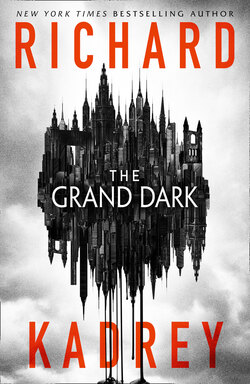Читать книгу The Grand Dark - Richard Kadrey - Страница 11
THE SECRET FETE
ОглавлениеFrom A Popular History of the Proszawan Underworld by Stefan Kreuz
Der Grandiose Kanzler had been an elegant establishment before the war, serving some of the finest food and wine in Lower Proszawa. However, it had fallen on hard times and closed for good after the owner embezzled the remaining funds and eloped with one of the serving girls. A series of lawsuits kept the place shuttered since then.
But not out of business.
Now dubbed Der Fliegende Schwanz, it was a thriving speakeasy on the edge of the Pappen district, where it served the best bootleg whiskey, cocaine, and morphia in the city. Der Fliegende Schwanz was mainly a working-class establishment, but members of the gentry would sometimes visit when they were in the mood to slum for an evening. They were always welcomed with open arms because they had better pockets to pick than the usual rabble.
The bar was a merry place most nights, fueled by drugs and the ubiquitous postwar delirium. It was a gathering spot for war veterans, workers from the armaments factory, laborers from the docks, and prostitutes to drink, tell stories, and make love in the bar’s immense but empty wine cellar. Musicians played for coins all day and night. There was dancing and laughter, but seldom any fights, which was unusual for an underground saloon, with its heady mix of alcohol, drugs, and sex. Perhaps the reason the bar sidestepped so much random violence was a special sort of entertainment it offered its patrons.
A makeshift ring stood at the center of Der Fliegende Schwanz. At the top of each hour two or more Maras—freshly stolen, their functionality modified—fought gladiatorial battles to the death. Most of the purloined Maras came from bluenose families in the city’s most expensive districts, so watching them beat each other with clubs was doubly entertaining. Bookies took bets on the battles and liquor sales always went up because the winners bought the losers a round and the losers bought even more rounds to soothe their aching egos. And the music never stopped. Neither did the laughter, the lovemaking, or the drip of morphia under happy tongues.
Around midnight each night, everything in the bar stopped and the patrons sang obscene, drunken versions of patriotic songs. Many of the men were veterans and had fought in High Proszawa, so after the singing they played a game in which they spat streams of alcohol at photochromes of the Chancellor and the Minister of War nailed to the wall. The players stood behind a line on the floor and the one who came closest or hit the chromes the longest drank free for the rest of the night.
Der Fliegende Schwanz never closed. The party never stopped. The delight never ebbed. Every night was a holiday and every morning a feast. And if, on some nights, the crowds got a bit out of control during the Mara fights and started breaking bottles and glasses, who cared? Like the Maras, they were stolen. Everything was fun and nothing mattered because everyone knew that sooner or later the cannons would boom again and nothing would be fun and everything would matter.
Until then, there was always time for one more drink or one more kiss or one more drop under the tongue.
